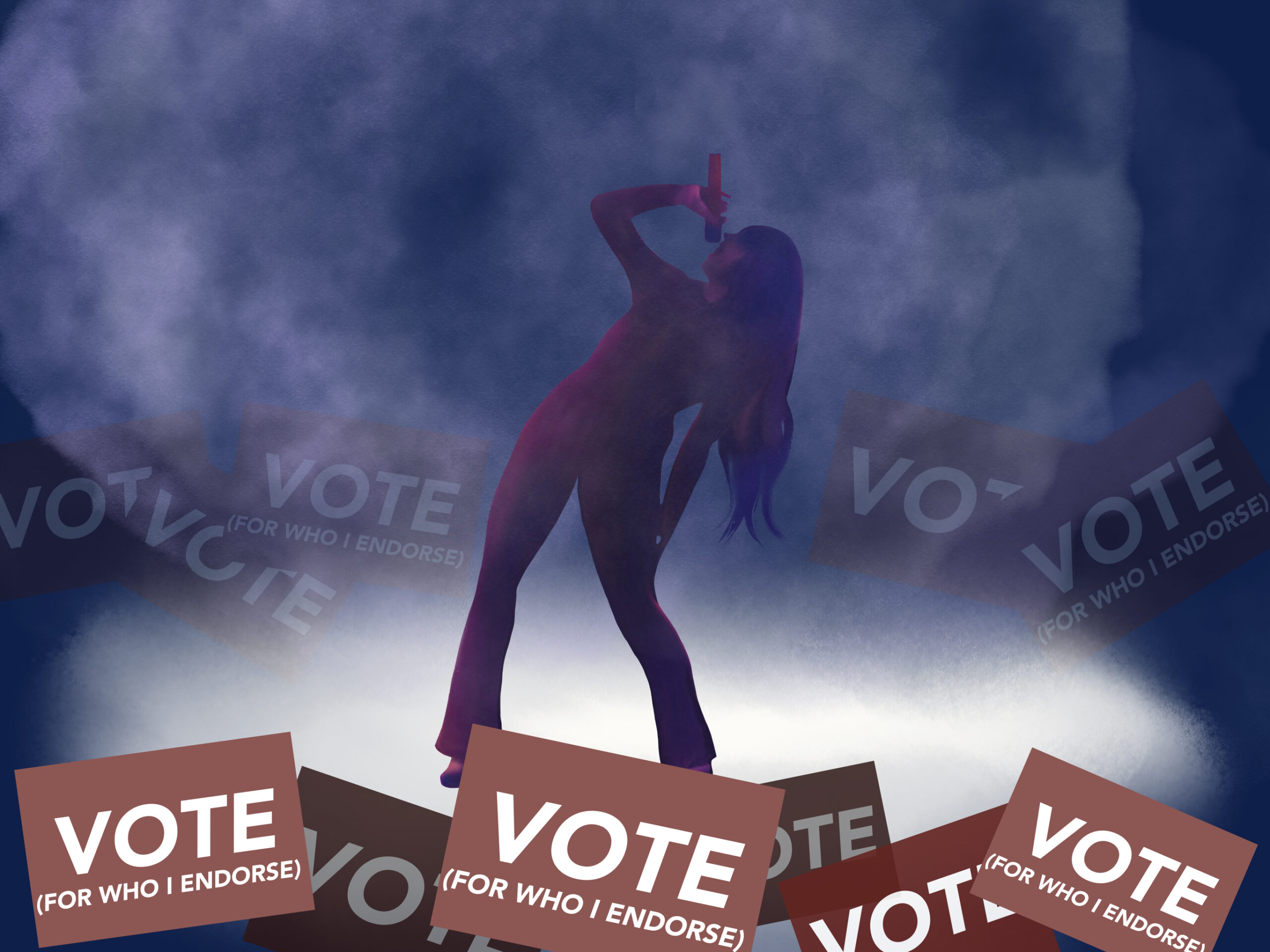A deeper look at celebrity political endorsements
With the American presidential election just around the corner, how much of an influence do celebrity endorsements have on a candidate’s success?
Celebrity political endorsements are not a new phenomenon. In 1920, Al Jolson endorsed Warren Harding, and Frank Sinatra openly supported John F. Kennedy. Recently, artists such as Billie Eilish, Finneas, and Taylor Swift have publicly endorsed candidate Kamala Harris. Fans have been vocal about wanting their “fave” to endorse one party, with some criticizing those who do not make a clear statement. However, how much of an impact do celebrity endorsements really have on elections?
Well, it’s hard to tell. In cases where an election is close, some believe endorsements can shift results by encouraging populations who may not regularly vote to do so. One of the only recorded instances believed to have influenced an election is Oprah Winfrey’s endorsement of Barack Obama in 2007, which is believed to have won him over one million votes.
In 2018, Taylor Swift endorsed democratic candidates on Instagram, encouraging her followers to vote as well. Within 24 hours, voter registration increased by 65,000. However, it is hard to pinpoint causality in this increase as Swift’s post occurred the same day as the debate, another strong factor in voter registration. On September 10 of this year, Swift publicly endorsed the Democratic candidates, and shortly after, more than 400,000 people visited the voting website. However, like her 2018 post, this occurred shortly after the presidential debate. Overall, it is hard to measure how much celebrity endorsements influence the results of a vote. While increased voter registration could be the result of a celebrity endorsement, it could also be a coincidence, especially when they occur at the same time as a major political event.
Despite this lack of evidence, many fans believe celebrities should use their platform for endorsements. The most recent example would be that of Chappell Roan, who chose not to endorse either party. Roan received tremendous backlash, with many claiming she was taking a neutral stance within politics. Roan has since made her stance clear, stating that although she will vote Democratic, she does not agree with everything the party stands for and thus cannot fully support them.
The controversy surrounding Roan’s statements has made clear the situation that many voters face: they are forced to choose the better of two less-than-ideal candidates, rather than someone they truly support. Roan’s criticism of the current candidates, particularly from her perspective as a member of the LGBTQ+ community, is important as rather than simply accepting this “lesser of two evils”, she is encouraging others to be more critical of their options in hopes of a better future candidate.
While celebrities need to use their platform for good, it seems unfair to criticize those who do not publicly support one party, especially considering the lack of concrete evidence on the impact of these endorsements. However, it is also important to be critical of politicians in any election and thus push celebrities to endorse these critical thinking skills to push for greater change.

